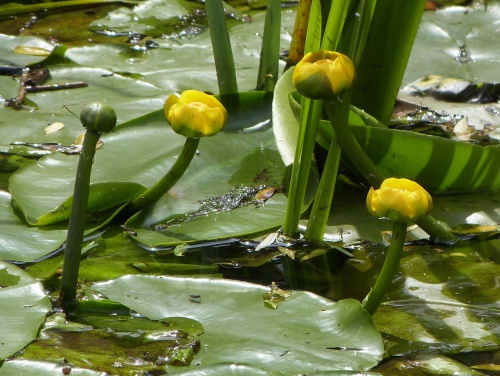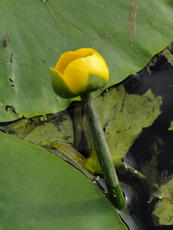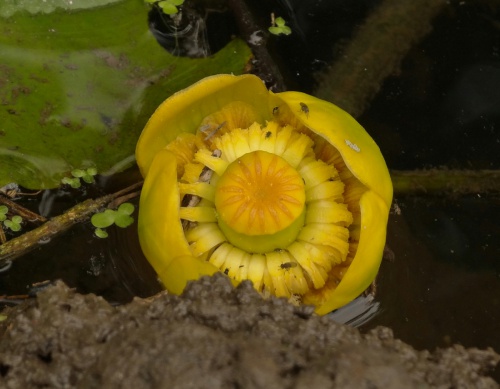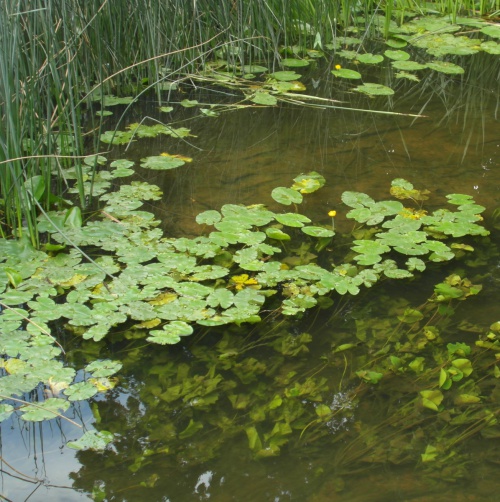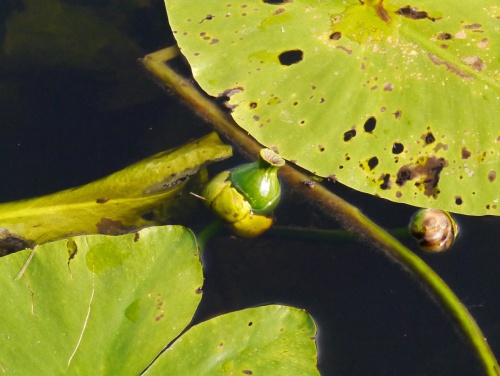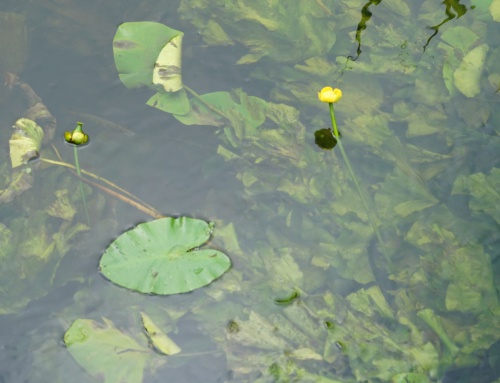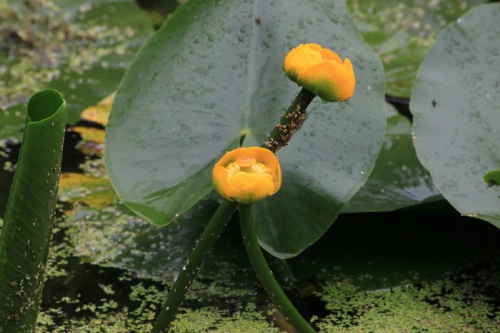Yellow Water-lily - Nuphar lutea
Stout rhizomatous plant. Floating leaves oval, cleft to the stalk, submerged leaves shorter stalked, rounded, thin and translucent. Flowers bright yellow, 12 to 40 mm, rising out of the water, with 5 large overlapping sepals, and numerous small petals. Fruit flask shaped.
Other water-lilies (Nymphaea and Nymphoides). The non-native ornamental spatter-dock (N advena) is occasionally naturalised in the UK but is not recorded in VC55; it has erect leaves, not floating. Note that some congested plants of the native N lutea may also have semi-erect non-floating leaves.
Non-flowering plants can usually be identified by presence of thin, lettuce-like submerged leaves or 'brandy-bottle' fruits
Photograph of flowering plant, or floating plus submerged leaves, or fruits.
Lakes, ponds, water filled quarries, streams and canals.
June to September.
Perennial.
Fairly frequent throughout Britain except in the extreme north.
Fairly frequent in Leicestershire and Rutland. The Flora of Leicestershire published in 1988 states that it occurred in 134 of the 617 tetrads.
In the current checklist (Jeeves 2011) it is listed as native; locally abundant
Leicestershire & Rutland Map
Enter a town or village to see local records
MAP KEY:
Yellow squares = NBN records (all known data)
Coloured circles = NatureSpot records: 2025+ | 2020-2024 | pre-2020
UK Map
Species profile
- Common names
- Yellow Water-lily
- Species group:
- Wildflowers
- Kingdom:
- Plantae
- Order:
- Nymphaeales
- Family:
- Nymphaeaceae
- Records on NatureSpot:
- 131
- First record:
- 11/08/2008 (Calow, Graham)
- Last record:
- 23/07/2025 (Pugh, Dylan)
Total records by month
% of records within its species group
10km squares with records
The latest images and records displayed below include those awaiting verification checks so we cannot guarantee that every identification is correct. Once accepted, the record displays a green tick.
In the Latest Records section, click on the header to sort A-Z, and again to sort Z-A. Use the header boxes to filter the list.


